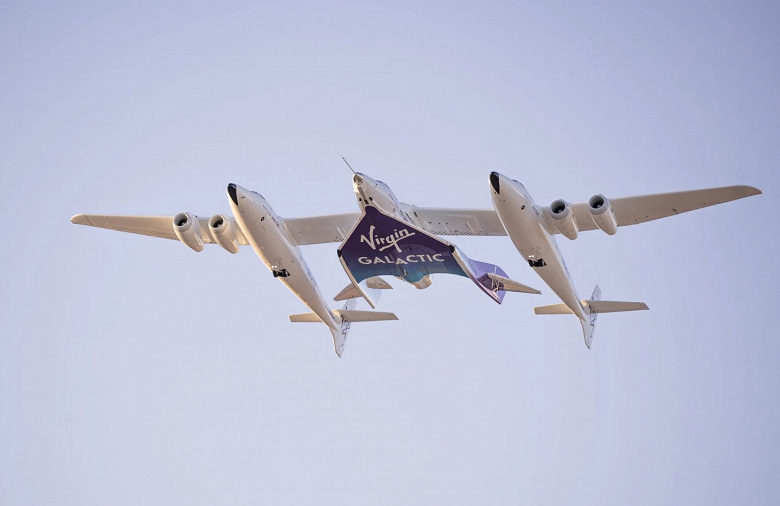The company is preparing for a new suborbital mission and is actively cooperating in the investigation of the incident
Virgin Galactic said they do not expect any delays to their next suborbital launch, which could be caused by an investigation into an issue that arose on their last flight. The company emphasized that its current focus is on developing next-generation aircraft.
As part of its earnings call released on February 27, Virgin Galactic executives said that despite the Galactic 06 launch incident on January 26, they remain committed to a successful launch of the Galactic 07 mission in the second quarter of this year. of the year. A few minutes after Unity took off, the alignment pin on the VMS Eve carrier fell out. The company notified the Federal Aviation Administration of the incident on February 5.
«We do not expect any detrimental impact on the Galactic 07 schedule. The investigation, in cooperation with the FAA, is progressing very well», — said Mike Moses, President of Space Operations at Virgin Galactic.
So far, the company has decided not to disclose the names of clients and the exact launch date of Galactic 07.
Galactic 07 may be VSS Unity's last flight. In November, the company announced its intention to stop operating it in mid-2024. Instead, the company plans to focus on developing more advanced Delta-class suborbital vehicles. These include both Galactic 06 and Galactic 07 in the first and second quarters, respectively, and the expected Galactic 08 in the middle of the year. These devices will offer more comfortable space and flights for passengers.
Following the successful completion of VSS Unity's latest flights, the company hopes to maximize revenue. According to a statement from Michael Colglaser, Virgin Galactic's chief executive, the company expects the average revenue per seat on the Galactic 07 mission to exceed $800,000, and a significant number of seats have already been sold for around $1,000,000. The company is not actively selling seats at this time. but offers reserved ones to its regular customers at a special price of $600,000.
Colglaser also reported on ongoing progress in the development of the Delta class aircraft. The aircraft are being prepared for ground and flight tests next year, and commercial operation in 2026. Internal structure «Delta» will have significant differences from VSS Unity, and the use of high-temperature composites will reduce weight, as a result of which up to six passengers can be accommodated on board. In addition, it is planned to expand the frequency of flights — up to eight times per month, compared to one flight per month on VSS Unity.
Virgin Galactic executives express absolute optimism about the company's long-term future. They hope to transition to Delta-class craft in the near future to increase their market share in commercial space tourism. A fleet of four to five spaceplanes and two core aircraft could support 300 to 400 flights per year, generating revenue of more than $1 billion per year. These flights will serve a market of approximately 300,000 people worldwide, the company estimates based on its own research.
The company is already considering expanding its operations to other facilities in the United States or abroad, and is also planning the development of its spaceport «America».

